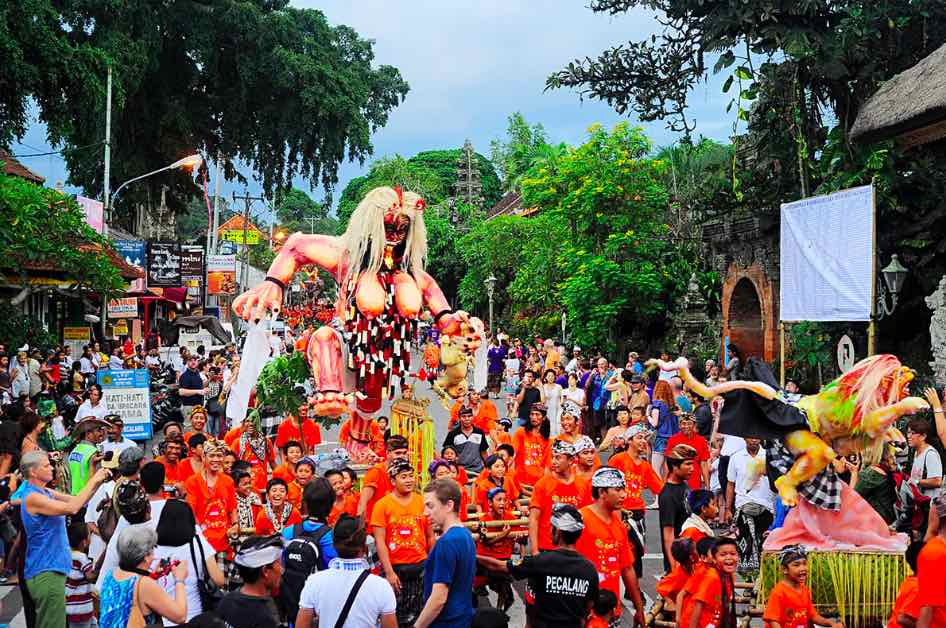zoomacademia.com – Nyepi Day, also known as the Balinese Day of Silence, is one of the most significant religious and cultural observances in Bali, Indonesia. It marks the Balinese New Year, according to the Saka calendar, and is a day dedicated to self-reflection, meditation, and spiritual cleansing. Unlike typical New Year celebrations filled with festivities, Nyepi is observed with complete silence, minimal movement, and a pause on all worldly activities.
The Meaning and Purpose of Nyepi
Nyepi is deeply rooted in Balinese Hindu traditions and symbolizes the cleansing of negative energies to welcome the new year with purity and peace. The day is meant for introspection, allowing individuals to reconnect with themselves and the divine. The silence observed during Nyepi also serves to deceive evil spirits, making them believe that the island is uninhabited, thus protecting Bali from harm.
Rituals and Observances Leading to Nyepi
The celebration of Nyepi is preceded by several important rituals:
- Melasti Ceremony – Held a few days before Nyepi, this purification ritual takes place at the beach, where sacred objects from temples are cleansed in the ocean. This is believed to rid negative elements and purify the environment.
- Tawur Kesanga (Ogoh-Ogoh Parade) – On the eve of Nyepi, colorful and grotesque statues called Ogoh-Ogoh, representing evil spirits, are paraded through the streets. This ritual symbolizes the expulsion of negative energies. At the end of the parade, the effigies are often burned to signify the destruction of malevolent forces.
The Silence of Nyepi
On the day of Nyepi itself, strict rules are followed across the island:
- No Lights (Amati Geni) – Fire, electricity, and any form of lighting are avoided.
- No Travel (Amati Lelungan) – Streets and beaches are empty as people stay indoors.
- No Work (Amati Karya) – All businesses and activities, including the airport, shut down for 24 hours.
- No Entertainment (Amati Lelanguan) – No loud music, television, or social gatherings are permitted.
- Fasting and Meditation – Many Balinese observe fasting and spend the day meditating.
Even tourists are expected to adhere to the silence by staying inside their hotels or resorts, respecting the local customs.
The Day After Nyepi: Ngembak Geni
The day following Nyepi, known as Ngembak Geni, is a time for socializing and seeking forgiveness from family and friends. It marks a fresh start filled with harmony and renewed relationships.
The Unique Experience of Nyepi
Nyepi offers a rare experience of true tranquility, unlike any other celebration in the world. The complete stillness of the island provides a chance to witness Bali in its most serene and untouched state. It is a moment of collective mindfulness and a reminder of the importance of peace and reflection in modern life.
For visitors, experiencing Nyepi can be a powerful and transformative event, offering a break from the fast-paced world and an opportunity for personal growth. It is a testament to Bali’s deep-rooted spiritual traditions and the island’s unwavering commitment to balance and harmony.
Conclusion
Nyepi is not just a religious observance but a profound cultural tradition that showcases the rich spiritual heritage of Bali. By embracing silence and self-reflection, the Balinese people welcome the new year with purity and renewed energy. Whether you are a local or a traveler, Nyepi serves as a beautiful reminder of the power of stillness and the importance of inner peace in our lives.










